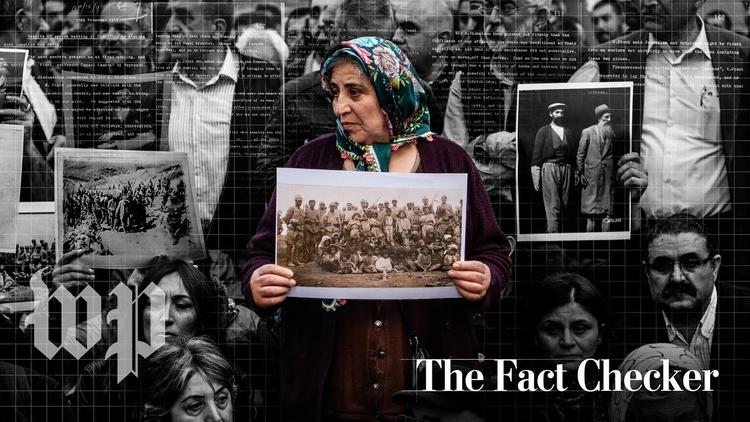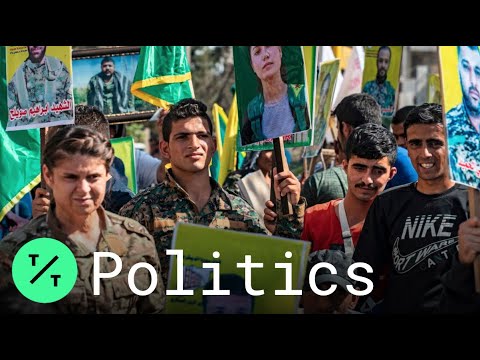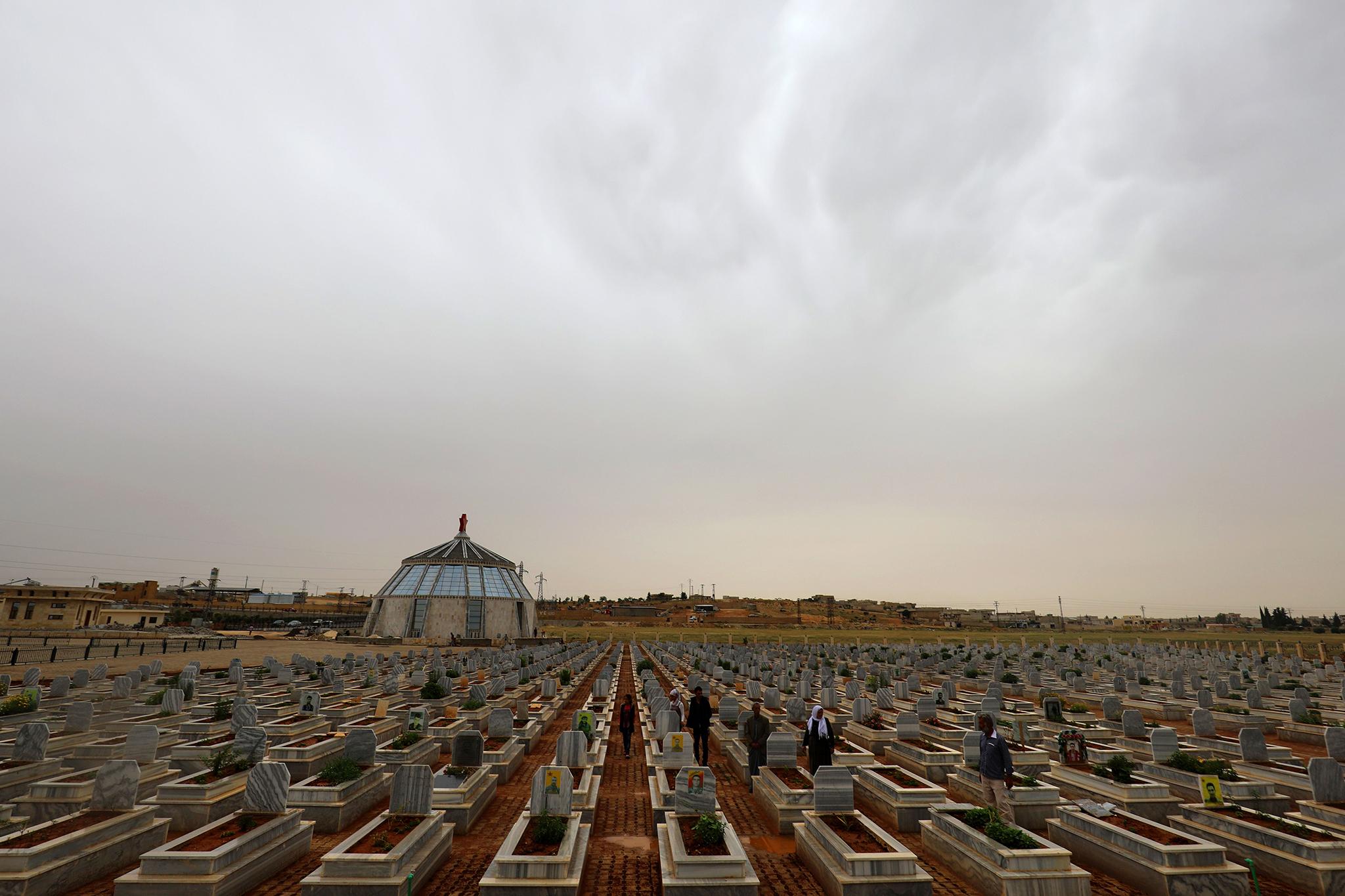
(Reuters) – A convoy of peshmerga fighters from northern Iraq headed across southeastern Turkey on Wednesday towards the Syrian town of Kobani to try to help fellow Kurds break an Islamic State siege which has defied U.S.-led air strikes.
Kobani, on the border with Turkey, has been under assault for more than a month and its fate has become a test of the U.S.-led coalition’s ability to combat the Sunni Muslim insurgents.
Weeks of air strikes on Islamic State positions around Kobani and the deaths of hundreds of their fighters have failed to break the siege. The Kurds and their international allies hope the arrival of the peshmerga, along with heavier weapons, can turn the tide.
The Kurdish fighters were given a heroes’ welcome as their convoy of jeeps and flatbed trucks, some bearing heavy machineguns, snaked its way for around 400 km (250 miles) through Turkey’s mostly Kurdish southeast after crossing the border from northern Iraq.
The presence of Kurdish forces passing with government permission through a part of Turkey which has seen a three-decade insurgency by local Kurdish PKK militants was an extraordinary sight for many residents.
Villagers set bonfires, let off fireworks and chanted by the side of the road as the convoy passed. Thousands took to the streets of the border town of Suruc, descending on its tree-lined main square and spilling into side streets, some with faces painted in the colors of the Kurdish flag.
“All the Kurds are together. We want them to go and fight in Kobani and liberate it,” said Issa Ahamd, an 18-year-old high school student among the almost 200,000 Syrian Kurds who have fled to Turkey since the assault on Kobani began.
An initial group of between 90 and 100 peshmerga fighters arrived by plane amid tight security in the nearby city of Sanliurfa early on Wednesday, according to Adham Basho, a member of the Syrian Kurdish National Council from Kobani.
Saleh Moslem, co-chair of the Syrian Kurdish Democratic Union Party (PYD), said the peshmerga were expected to bring heavy arms to Kobani – known as Ayn al-Arab in Arabic.
“It’s mainly artillery, or anti-armor, anti-tank weapons,” he said. The lightly armed Syrian Kurds have said such weaponry is crucial to driving back Islamic State insurgents, who have used armored vehicles and tanks in their assault.
Kurdistan’s Minister of Peshmerga, Mustafa Sayyid Qader, told local media on Tuesday that no limits had been set to how long the forces would remain in Kobani. The Kurdistan Regional Government has said the fighters would not engage in direct combat in Kobani but rather provide artillery support.
RADICAL ISLAM
Islamic State has caused international alarm by capturing large expanses of Iraq and Syria, declaring an Islamic “caliphate” that erases borders between the two. Its fighters have slaughtered or driven away Shi’ite Muslims, Christians and other communities who do not share their ultra-radical brand of Sunni Islam.
Fighters from the Nusra Front, al Qaeda’s official affiliate in the Syrian civil war, have meanwhile seized territory from moderate rebels in recent days, expanding their control into one of the few areas of northern Syria not already held by hardline Islamists.
Nearly 10 million people have been displaced by Syria’s war and close to 200,000 killed, according to the United Nations. A Syrian army helicopter dropped two barrel bombs on a displaced persons camp in the northern province of Idlib on Wednesday, killing many, camp residents said.
In Iraq, security forces said they had advanced to within 2 km (1.2 miles) of the city of Baiji on Wednesday in a new offensive to retake the country’s biggest oil refinery that has been besieged since June by Islamic State.
Islamic State has threatened to massacre Kobani’s defenders, triggering a call to arms from Kurds across the region.
The U.S. military conducted 14 air strikes on Tuesday and Wednesday against Islamic State in Syria and Iraq, according to a statement from U.S. Central Command. Eight of the raids destroyed Islamic State targets near Kobani, it said.
At least a dozen shells fired by Islamic State fighters fell on the town overnight as clashes with the main Syrian Kurdish armed group, the YPG, continued, according to the British-based Syrian Observatory for Human Rights.
It said preparations were being made at a border gate which Islamic State fighters have repeatedly tried to capture before the arrival of the peshmerga, while YPG and Islamic State forces exchanged fire in gun battles on the southern edge of the town.
The Observatory also said 50 Syrian fighters had entered Kobani from Turkey with their weapons, though it was unclear which group they belonged to. Turkey has pushed for moderate Syrian rebels fighting President Bashar al-Assad to join the battle against Islamic State in Kobani.
Rebel commander Abdul Jabbar al-Oqaidi said he had led 200 Free Syrian Army fighters into Kobani but there was no independent confirmation of this. The FSA describes dozens of armed groups fighting Assad but with little or no central command. It is widely outgunned by Islamist insurgents.
DELICATE PARTNERSHIP
The Iraqi Kurdish region’s parliament voted last week to deploy some peshmerga forces to Syria and, under pressure from Western allies, Turkey agreed to let then cross its territory.
The United States and its allies in the coalition have made clear they do not plan to send troops to fight Islamic State in Syria or Iraq, but they need fighters on the ground to capitalize on their air strikes.
Syrian Kurds have called for the international community to provide them with heavier weapons and munitions and they have received an air drop from the United States.
But Turkey accuses Kurdish groups in Kobani of links to the militant PKK (Kurdistan Workers’ Party), which has fought the insurgency against the Turkish state and is regarded as a terrorist group by Ankara, Washington and the European Union.
That has complicated efforts to provide aid.
A Syrian Kurdish official said in Paris on Wednesday that France, which has taken part in air strikes in Iraq and given Iraqi peshmerga fighters weapons and training, had yet to fulfill a promise to give support to Kurds in Syria.
“France has said it was ready to help the Kurds, but we haven’t been received by the French authorities. There has been no direct or indirect contact,” Khaled Eissa, representative in France of the Syrian Kurdish Democratic Union Party (PYD), said.
French officials confirmed there had been no meetings in large part due to concern about historic links to the PKK.
Ankara fears Syria’s Kurds will exploit the chaos by following their brethren in Iraq and seeking to carve out an independent state in northern Syria, emboldening PKK militants in Turkey and derailing a fragile peace process.
The stance has enraged Turkey’s own Kurdish minority, about a fifth of the population and half of all Kurds across the region. Kurds suspect Ankara, which has refused to send in its forces to relieve Kobani, would rather see Islamic State jihadists extend their territorial gains than allow Kurdish insurgents to consolidate local power.


![What is behind the Israeli outrage over Turkey's Syria operation? File: US President Donald Trump gestures as he and Israel's Prime Minister Benjamin Netanyahu deliver statements at the White House in Washington, US, March 25, 2019 [Carlos Barria/Reuters]](https://www.aljazeera.com/mritems/imagecache/mbdxxlarge/mritems/Images/2019/10/25/82c3cb4d276e41e09d95e7d19ad7c360_18.jpg)


















![Iraqi Kurds in major offensive against ISIL Peshmerga forces have succeeded in regaining several towns and villages from ISIL [Getty Images]](https://i0.wp.com/www.aljazeera.com/mritems/imagecache/mbdxxlarge/mritems/Images/2015/1/21/201512110104968734_20.jpg)







You must be logged in to post a comment.